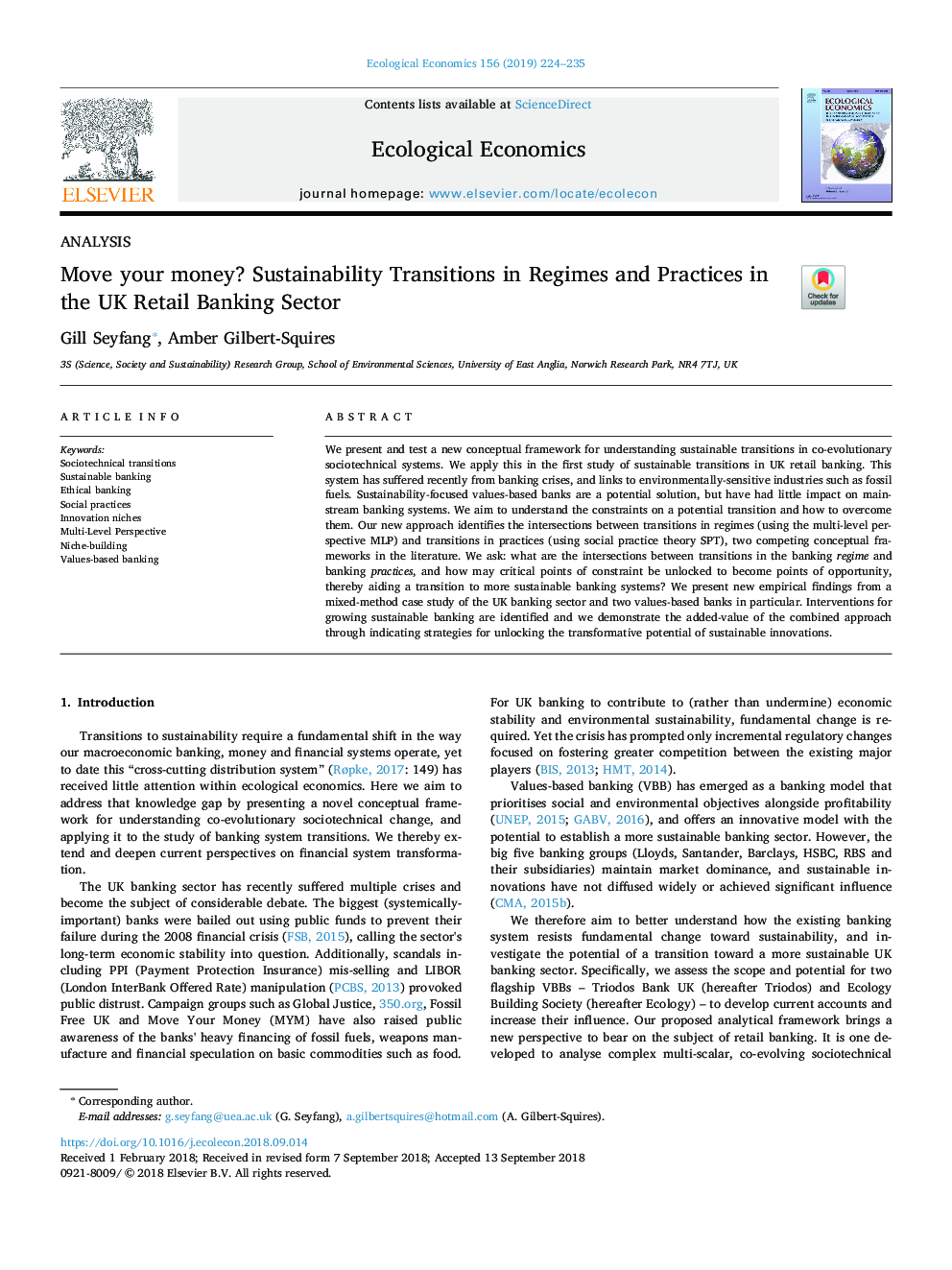| Article ID | Journal | Published Year | Pages | File Type |
|---|---|---|---|---|
| 11029798 | Ecological Economics | 2019 | 12 Pages |
Abstract
We present and test a new conceptual framework for understanding sustainable transitions in co-evolutionary sociotechnical systems. We apply this in the first study of sustainable transitions in UK retail banking. This system has suffered recently from banking crises, and links to environmentally-sensitive industries such as fossil fuels. Sustainability-focused values-based banks are a potential solution, but have had little impact on mainstream banking systems. We aim to understand the constraints on a potential transition and how to overcome them. Our new approach identifies the intersections between transitions in regimes (using the multi-level perspective MLP) and transitions in practices (using social practice theory SPT), two competing conceptual frameworks in the literature. We ask: what are the intersections between transitions in the banking regime and banking practices, and how may critical points of constraint be unlocked to become points of opportunity, thereby aiding a transition to more sustainable banking systems? We present new empirical findings from a mixed-method case study of the UK banking sector and two values-based banks in particular. Interventions for growing sustainable banking are identified and we demonstrate the added-value of the combined approach through indicating strategies for unlocking the transformative potential of sustainable innovations.
Related Topics
Life Sciences
Agricultural and Biological Sciences
Ecology, Evolution, Behavior and Systematics
Authors
Gill Seyfang, Amber Gilbert-Squires,
